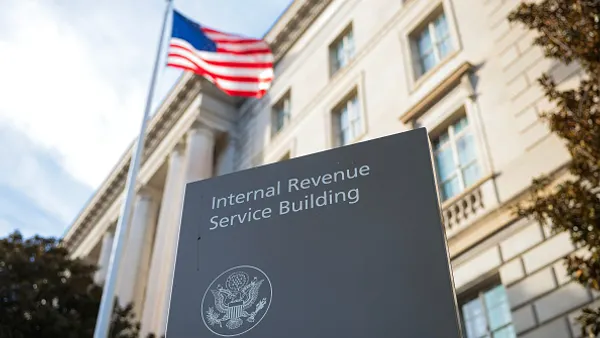Dive Brief:
- Nearly one in four (23%) CFOs anticipate their treasury departments will accept cryptocurrencies as a payment method, or purchase such assets as investments, within the next two years, according to a recent survey by Big Four firm Deloitte found. That percentage jumps to 39% of finance chiefs at companies with revenues at $10 billion or higher, the Q2 2025 North American Signals survey found.
- Finance chiefs are eyeing stablecoins in particular — digital assets with their valuation tied to that of another asset, typically a fiat currency — as “a practical entry point” into adoption of digital assets, according to a Thursday press release on the survey results. Only 1% of the 200 finance chiefs surveyed don’t expect to utilize stablecoin over the long-term, according to the survey.
- “CFOs are thinking beyond any 'crypto hype' and focusing on the practical implications of digital assets," Steve Gallucci, U.S. and global leader of Deloitte's CFO Program, said in a statement included in the release. "They appear to be assessing where cryptocurrency can drive efficiency, reduce friction in global operations and future-proof financial infrastructure. The opportunity isn't just about innovation; it's about making informed, strategic moves that align with enterprise value and control."
Dive Insight:
Stablecoins have gained increased attention from business and executive leaders during the past year, as the Trump administration takes steps to bring cryptocurrency and digital assets into mainstream finance. In recent weeks, President Donald Trump signed the GENIUS Act into law, a regulation which establishes guidelines for issuers of stablecoins.
The passing of the GENIUS Act helps to add a much-needed level of legitimacy to stablecoin and other cryptocurrencies for finance chiefs, experts previously told CFO Dive, with CFOs taking a closer look at how such assets could be put to best use inside of their businesses.
Stablecoins could enable faster and less costly cross-border payments, for example, with 39% of CFOs citing more efficient cross-border payments as a “top motivator” for the adoption of such assets, Deloitte found. Forty-five percent of finance chiefs also pointed to greater customer privacy as a key motivator for stablecoin adoption, according to the survey.
As interest in stablecoin grows, finance chiefs are also broaching the topic with other senior leadership. Over a third (37%) of finance chiefs have had conversations with their boards about cryptocurrency, Deloitte’s survey found, while 41% have had such discussions with their chief information officers.
However, “these early conversations might underscore a recognition that any move toward adoption will likely require a robust governance framework and hefty IT support,” according to the survey.
Although the GENIUS Act helped to establish clear guidelines for stablecoin issuance, questions regarding cryptocurrency accounting and compliance still linger for CFOs.
Lawmakers, for instance, are considering the age-old question of which digital assets might count as securities, and which government bodies have the power to regulate those assets. In recent votes, the House of Representatives passed both the Digital Asset Market Clarity Act of 2025, or CLARITY Act, as well as the Anti-Central Bank Digital Currency Surveillance State Act, aimed at addressing those gaps.
The CLARITY Act, sponsored by Rep. French Hill (R-AR), seeks to establish a framework for digital commodities, and looks to provide jurisdiction to the Commodity Futures Trading Commission to regulate digital commodities transactions, according to a summary of the bill.
Meanwhile, in a 166-page report issued Wednesday, the cryptocurrency Presidential Working Group established by President Trump in January recommended that lawmakers “build on the massive bipartisan House of Representatives vote for CLARITY” by enacting legislation that “eliminates existing gaps in regulatory oversight by providing the CFTC authority to oversee spot markets for non-security digital assets,” according to a fact sheet.
Among other recommendations, the working group’s report also lays out a plan of action for the CFTC and the Securities and Exchange Commission, noting the two agencies should utilize their authority to help enable digital asset trading at the federal level.
“At its core, the PWG report reflects a conviction that I have long held: a rational regulatory framework for digital assets is the best way to catalyze American innovation, protect investors from fraud and keep our capital markets the envy of the world,” SEC Chair Paul Atkins said in a statement on the report released Wednesday. “Unfortunately, my predecessor and the previous administration did not share that vision. Thank goodness President Trump does and is leading on it.”
















